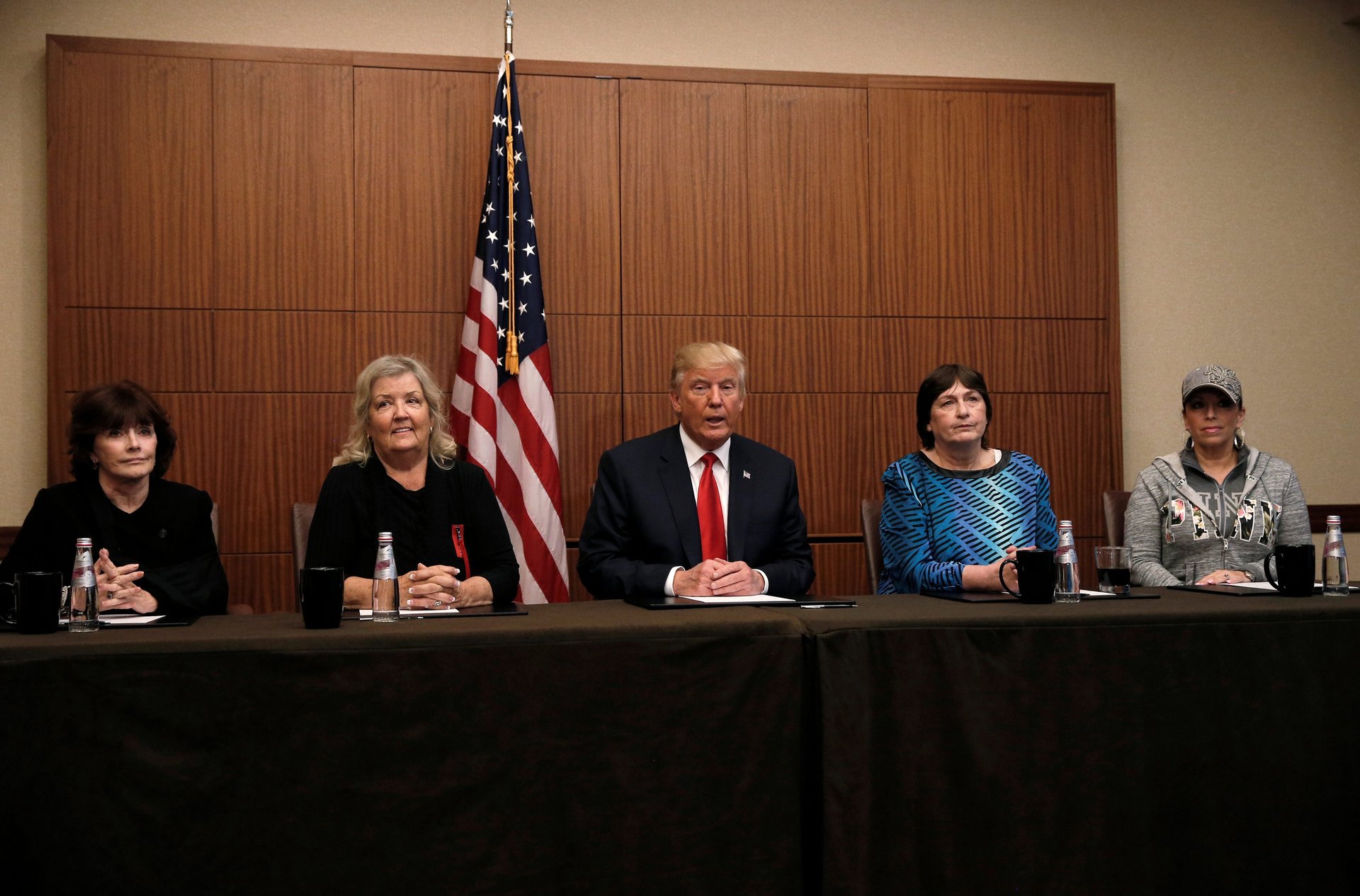Donald Trump’s presidential campaign is testing a fundamental rule of geopolitics
The precipice rule, one of Quartz’s 14 rules of geopolitics, states that people may walk right up to the edge of ruination, but rarely force the issue and go over the cliff. That’s why we projected back in January that Donald Trump would win the Republican party’s nomination for US president but ultimately lose the general election to Democrat Hillary Clinton in a landslide.


The precipice rule, one of Quartz’s 14 rules of geopolitics, states that people may walk right up to the edge of ruination, but rarely force the issue and go over the cliff. That’s why we projected back in January that Donald Trump would win the Republican party’s nomination for US president but ultimately lose the general election to Democrat Hillary Clinton in a landslide.
People are not ordinarily suicidal. So our thinking was that, while Trump would appeal in a primary to voters who are frustrated with the status quo, Americans by and large would perceive the impact of a Trump presidency as a potential disaster and vote accordingly. They would thus yet again validate the precipice rule.
But after the second US presidential debate, held in St. Louis on Oct. 9, we seem to be pushing the bounds.
Trump has not been willing to promise to recognize the validity of the election should he lose on Nov. 8. Rather, he has been traveling the country claiming that, if the outcome isn’t favorable to him (and current polls suggest it won’t be), the vote will have been rigged. Trump’s baffling cast of doubt over the entire election process has raised concerns that he is stoking the potential for violent disobedience by his supporters if Clinton wins.
But before we get to this, let’s consider Trump’s actions the night of their second debate Oct. 9. Just an hour before face-off, Trump held a surprise news conference, where he appeared with three women who have accused Clinton’s husband of either rape, abuse, or unwanted sexual advances. Also at the dais was a rape victim whose alleged attacker was a client of Hillary Clinton’s. The women then attended the debate, seated up front as guests of Trump.
This was a political stunt and an attempt to rattle Clinton’s psyche. Not long into the debate, Trump vowed, if elected, to prosecute Clinton and send her to jail.
Trump has been pulling at the seams of the nation’s fabric for more than a year, with appeals to bigotry, sexism, and the ridicule of the handicapped. And he has already has sent the Republican party to the brink of an open breach.
His antics on the night of the second debate seemed to demonstrate that he is prepared to go to any extreme to win election—which is precisely what worries people who count on the precipice rule to avoid political suicide by a national electorate.